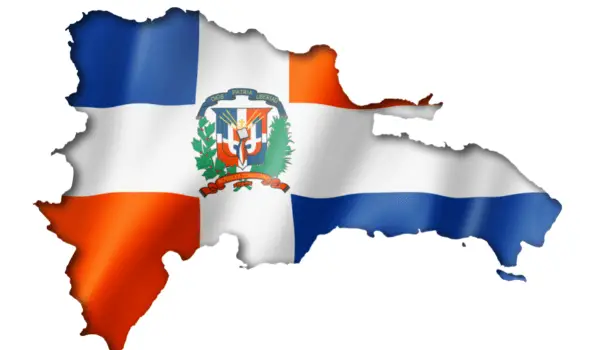Dominican last names are important to their culture. Dominicans have three types of last names: paternal, maternal, and occupational. It is not uncommon for a person to have more than one type of last name, which can be either inherited or acquired through marriage. There are several different kinds of Dominican Republic surnames that you may hear when in the country, these are some of the most common ones:
- Rodriguez
Rodriguez (or Rodrigues) is the most popular Dominican last name, being closely followed by Pérez.
1. Guerrero
Derived from the names of Mexican towns and cities, Guerrero has a Spanish origin, meaning ‘warrior’.
2. Feliz
This Spanish surname means ‘happy’.
3. Castro
Castro has a Latin origin and it means ‘fortification’.
4. Marmolejos
This last name has a Spanish origin, it means ‘little balls’ or ‘beads’. It is also common in Puerto Rico.
5. Reyes
Derived from the Latin Rex, Reyes is of Spanish origin and it means ‘king’. It was originally used to refer to the rulers of Germanic tribes during the Christianization of Spain; after the Normans invaded England, it was also brought over to Britain where it replaced the Old English cognate form Rois (which comes from an earlier form Hroðgar).
6. Mateo
This name has a Latin root which in English means “gift of God”.
8. Pérez
This surname has a Spanish root, it means ‘pear tree’.
9. Jiménez
Derived from Ximeno or Jimeno (diminutive of James), Jiménez also hails from Spain and it means ‘son of James’ or ‘the younger one’ in reference to the Apostle James, son of Zebedee who was martyred by King Herod Agrippa I.
10. Martínez
Derived from the Latin Martinus, Martínez has a Spanish root and it means ‘warlike’ or ‘of Mars’. It is also a common surname in Puerto Rico.
11. Lugo
Lugo has a Latin origin and it means ‘originating in Lugo (Galicia), Spain’.
12. Medina
This last name has an Arabic root, meaning ‘city’ and it is of Spanish origin. It is also found in Puerto Rico as well as Chile, Colombia, and Cuba; specifically, Pinar del Río Province where its first settlers were brought over by Diego Velázquez.
13. Carrillo
It has a Spanish origin and it means ‘little rock’ or ‘charcoal’.
14. Sánchez
Derived from the Latin Sanctius, Sánchez is of Spanish origin and it means ‘holy’ or ‘saintly’. It is also a common surname in Puerto Rico as well as Cuba, Mexico, Italy, and Chile among other countries; specifically, Mendoza Province in Argentina where its first settlers were brought over by the San Martín brothers (Juan de Garay).
16. López
López has a Latin origin and it means ‘son of Lope (recurrent given name in the family)’. It is also a common surname in Mexico, the United States, and Puerto Rico.
17. Ramírez
This last name has an Iberian root meaning ‘to branch out from something’ and it has been used as both a given name and surname since the Middle Ages. It is also found frequently in Spain, Venezuela, Aruba, Chile, Guatemala, Uruguay and Cuba among other countries.
18. Lora
This last name has a Latin root meaning ‘blond’ or ‘yellow-haired’ (of blonde hair) and it is of Spanish origin.
19. Ríos
Ríos has a Latin origin and it means ‘rivers’ in English, coming from the word rius which is used to refer to either large rivers or small river currents. It is also found in Puerto Rico as well as Ecuador and Peru among other places.
Other common Dominican surnames
Alcantara
Valoy
Veras
Estevez
Nunez
Corniel
Caba
Capellan
De La Rosa
Abreu
Bejarano
Santiago
De La Cruz
Matias/Mateo
Montero/Montiel
Ramirez (Rameriz)
Fernandez (Ferdinands)
Romero
Ortiz (de Ortis)
Quiñones (de Quiñones de León)
Cabrera
Báez
Herrero (Smith)
Juanes
Muñoz
Suarez
Flores
Guerra (de la Guerra)
Iglesias
Garcia
Santana
Salvador/Salvi/Sabino
Vargas
Ramos
Quiñones
Ruiz/Reyes
Del Valle
Acosta
Moreno
Díaz
Hernández
García
Almanzar/Ala/Almonte
Cardenas
Chaves
Rivera (Ribera)
Delgado (de la Ribera)
Berroa/Berrondo
Rosario
Candelaria (Candela)
Vega
Hernandez
González
- 72 Car Names - November 9, 2021
- 40 Yellow Car Names - November 9, 2021
- 56+ Silver Car Names - November 5, 2021
